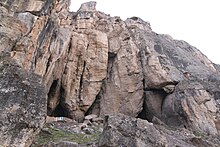Video: https://youtu.be/YemZni0RUpo
 Welcome to VEDIM day 25, today is National Wine Day! Be sure to have a glass today! I will be having one for sure (probably sake, but it’s technically rice wine so it counts). Before I get into it, I want to recommend you check out Sour Grapes, a documentary on Netflix if you have an account or access to one. It’s about a guy who was a “wine savant” and swindled people out of their money with fake fine wine. It’s very fascinating, and you learn a bit about the wine collecting world. Okay, now onto the day. Since there isn’t really any “history” of this day, I’m giving you some wine history!
Welcome to VEDIM day 25, today is National Wine Day! Be sure to have a glass today! I will be having one for sure (probably sake, but it’s technically rice wine so it counts). Before I get into it, I want to recommend you check out Sour Grapes, a documentary on Netflix if you have an account or access to one. It’s about a guy who was a “wine savant” and swindled people out of their money with fake fine wine. It’s very fascinating, and you learn a bit about the wine collecting world. Okay, now onto the day. Since there isn’t really any “history” of this day, I’m giving you some wine history!

Wine has been produced for thousands of years. The earliest evidence of wine, or at least a grape-based fermented drink, was found in China (c. 7000 BC), Georgia (c. 6000 BC), and Iran (c. 5000 BC). The earliest known winery is the 6,100-year-old Areni-1 winery Armenia. Presumably, wine production started much earlier than that. Wine reached the Balkans by 4500 BC and was consumed and celebrated in ancient Greece, Thrace, and Rome. Throughout history, wine has been consumed for its intoxicating effects. The spread of wine culture westwards was most probably due to the Phoenicians who spread outward from a base of city-states along the Lebanese, Syrian, and Israeli coasts. The wines of Byblos were exported to Egypt during the Old Kingdom and then throughout the Mediterranean. Evidence includes two Phoenician shipwrecks from 750 BC discovered by Robert Ballard, whose cargo of wine was still intact. As the first great traders in wine, the Phoenicians seem to have protected it from oxidation with a layer of olive oil, followed by a seal of pinewood and resin. The ancient Romans planted vineyards near garrison towns so wine could be produced locally rather than shipped over long distances. Some of these areas are now world-renowned for wine production. The Romans discovered that burning sulfur candles inside empty wine vessels kept them fresh and free from a vinegar smell. In medieval Europe, the Roman Catholic Church supported wine because the clergy required it for the Mass. Monks in France made wine for years, aging it in caves. An old English recipe that survived in various forms until the 19th century calls for refining white wine from bastard—bad or tainted bastardo wine.
I hope you enjoyed that, and learned a bit about wine!
Leave a Reply